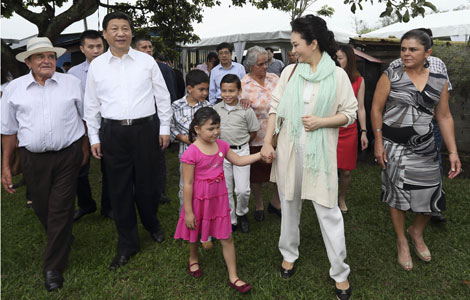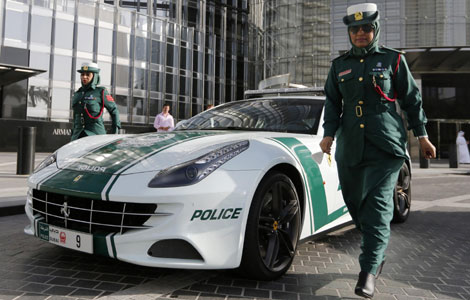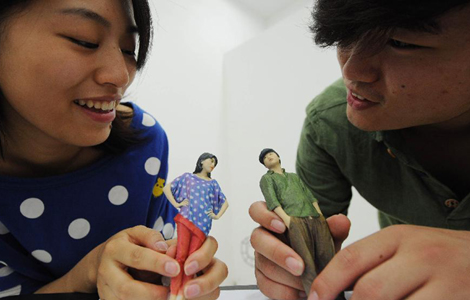Reform partisan politics to weather financial crisis
Updated: 2013-04-08 23:03
(chinadaily.com.cn)
|
||||||||
European countries troubled by partisan politics in the financial crisis should have the courage to try to win support from society to reform their political systems, says an editorial in People's Daily. Excerpts:
Italian President Giorgio Napolitano appointed 10 experts from various fields to draft a set of policy suggestions in a bid to win everyone's approval. He admits Italy is going through a difficult time, and the political and economic instability harms Italy's national image.
This reminds us of earlier warnings from the International Monetary Fund that if European countries do not show strong political leadership, the financial turmoil of Europe will get worse.
Left-wing parties propose raising taxes to increase expenses on the public, while right-wing parties insist on cutting taxes and public expenditures. The sharp contrast causes wide doubts on the left.
Some radical leftists and rightists try their best to win people's supports through populist tricks. Meanwhile, some big parties that have run their countries for a long time are gradually marginalized in elections, while the small parties winning the elections cannot solve the financial difficulties any better than their predecessors. The political system of these countries is held hostage and finally paralyzed by election and partisan politics.
The European Central Bank is in charge of the countries' monetary policies. But countries make their own economic policies and are governed by parties. The conflicts between domestic administrations and continental governance impair Europe's collective power as well as the executive power of the parties in individual countries.
Where is the way out of the partisan politics?
Some people believe the European countries will automatically recover from partisan politics after the financial crisis recedes. Others people call for progress out of the crisis through reforming partisan politics.
The second point of view is obviously more self-reflective and self-criticizing than the first. But the problem is the core content of the reform, and how countries can get support from society for reforms.
Most Viewed
Editor's Picks

|

|

|

|

|

|
Today's Top News
Relationship 'relaunched'
Good start expected for summit
Xi, Mexican president discuss bilateral co-op
Cooperation to drive mutual growth
Chinese president arrives in Mexico for state visit
China is victim of hacking attacks
US to be largest trade partner
China joins fight against hacking
US Weekly

|

|
















